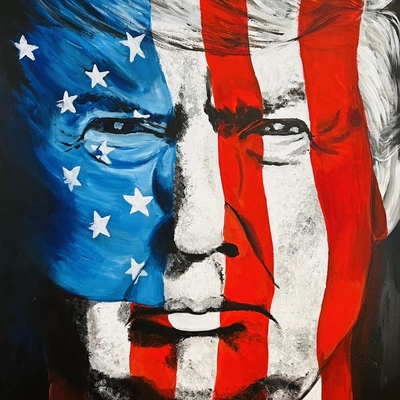Stay informed on the latest Truth Social posts from Donald Trump (@realDonaldTrump) without the doomscrolling. Consider it a public service for your mental health. (Why?)
- The United States has a significant and unsustainable trade deficit with Brunei.
- The US-Brunei trade relationship is unilateral and far from reciprocal.
- Starting August 1, 2025, the US will charge a 25% tariff on all Bruneian products imported into the United States.
- Goods transshipped to evade higher tariffs will be subject to that higher tariff.
- There will be no US tariff if Brunei, or companies within Brunei, decide to build or manufacture products within the United States.
- If Brunei raises its tariffs, an additional amount will be added to the 25% US charge.
- Brunei's tariffs, non-tariff policies, and trade barriers are causing unsustainable trade deficits.
- The trade deficit is a major threat to the US Economy and National Security.
The letter outlines a specific tariff policy targeting Brunei, a relatively small economy. While a 25% tariff is substantial for goods originating from Brunei, the overall volume of trade between the US and Brunei is unlikely to cause a significant direct impact on the broad S&P 500 index. However, the policy statement frames trade deficits as a 'major threat' to the US economy and national security, which could signal a broader, more aggressive trade policy stance that might be applied to larger trading partners in the future, creating policy uncertainty. The impact would be minimal, possibly affecting specific sectors or companies with direct exposure to Bruneian imports if those are significant for particular niches.
The communication details a specific trade policy shift, including punitive tariffs and a warning of further measures if retaliatory tariffs are imposed. While it identifies a trade deficit as a 'major threat to our Economy and, indeed, our National Security,' the language is economic and diplomatic rather than military. It increases trade friction but does not directly suggest military conflict or alliance destabilization.
- Commodities: Brunei is a significant oil and natural gas producer. If these tariffs directly impact US imports of Bruneian energy, there could be a very minor, localized effect on specific energy commodity flows or prices, but no significant global impact. No direct impact on gold or silver is anticipated. Short-Term Watchlist: Minor shifts in specific oil/LNG contracts if US-Brunei trade is a significant component for a niche market. Medium-Term Focus: No significant change expected on global commodity trends.
- Currencies (Forex): The US Dollar Index (DXY) is unlikely to be significantly impacted by a policy directed solely at Brunei. The Bruneian Dollar (BND) is pegged to the Singapore Dollar (SGD); any impact on BND would be highly localized. Short-Term Watchlist: No significant impact expected. Medium-Term Focus: No significant impact expected.
- Global Equities: Direct impact on major global indices (S&P 500, Nasdaq, STOXX 600, Nikkei 225, and Hang Seng) is minimal due to Brunei's relatively small economic size and trade volume with the US. Any impact would be limited to specific companies with direct exposure to US-Brunei trade. Short-Term Watchlist: No significant impact on broad indices. Medium-Term Focus: No significant impact on broad indices.
- Fixed Income (Bonds): No direct impact on US 10Y and 2Y yields or flight to safety. The event is too specific and small to affect global bond markets. Short-Term Watchlist: No significant impact expected. Medium-Term Focus: No significant impact expected.
- Volatility / Derivatives: The VIX is unlikely to spike. This is a targeted trade policy, not a broad systemic risk event. Short-Term Watchlist: No significant impact expected. Medium-Term Focus: No significant impact expected.
- Crypto / Digital Assets: No direct connection between a US-Brunei trade tariff and Bitcoin or other digital assets. Short-Term Watchlist: No significant impact expected. Medium-Term Focus: No significant impact expected.
- Cross-Asset Correlations and Systemic Risk: No signs of systemic risk or breakdown in correlations. The scale of the event is too small to induce such effects. Short-Term Watchlist: No significant impact expected. Medium-Term Focus: No significant impact expected.
- Retail Sentiment / Market Psychology: Unlikely to trigger retail speculation or broad market psychology shifts. The specific nature of the policy and the target (Brunei) are not typically drivers of widespread retail interest. Short-Term Watchlist: No significant impact expected. Medium-Term Focus: No significant impact expected.

